Why do we check likes so often, or 10 examples of human mind control
Categories: Science | Social Networks | Society | World
By Pictolic https://pictolic.com/article/why-do-we-check-likes-so-often-or-10-examples-of-human-mind-control.htmlAre you the type of person who looks every 10 minutes at what's new on Instagram, "what if someone likes a photo or posted a new post"? If not, you are very lucky! So your brain is still coping with the pressure of the market.
But what if we say that social networks are far from the only "hook" on which we are constantly caught?
What other ways to control the masses exist, who needs it and why, read in our material.
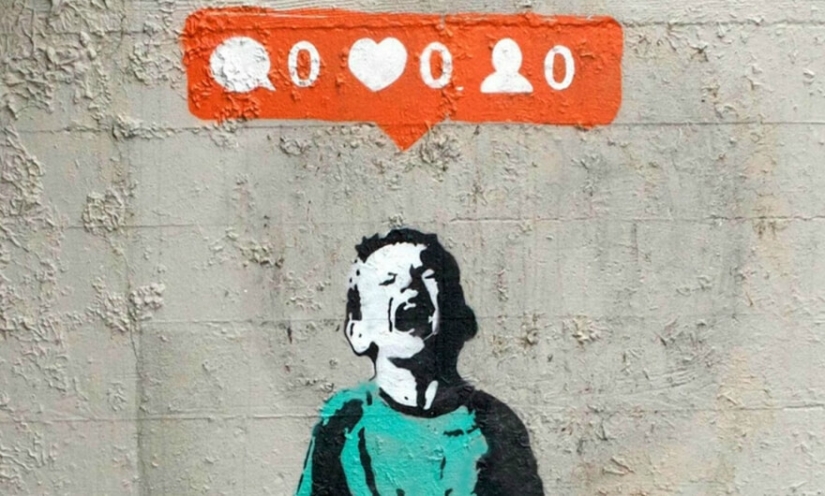
Surely, you have ever heard the theory that likes in social networks cause a rush of dopamine in their recipient. Dopamine is often called the "hormone of happiness", as its release leads to an improvement in mood, increased motivation and an aggravation of desires.
But in fact, dopamine is not "happiness" itself, but only gives a "promise" to make you happy.
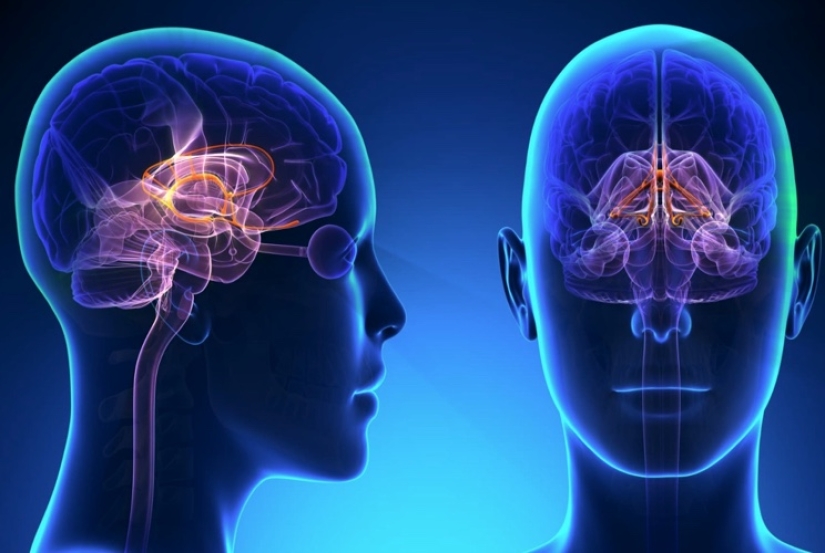
Let's consider the situation using the example of an experimental rat from a study by Peter Milner and James Olds. Scientists have inserted a special electrode into the part of the rodent's brain that is responsible for encouragement. The animal could stimulate it with a small button, thus getting pleasure, as Milner and Olds suggested.
But over time, the rat stopped eating and drinking, and only endlessly pressed the lever of stimulation of the electrode.
Later, a similar experiment was conducted with the participation of people. They were similarly implanted with electrodes and given buttons for stimulation. Some subjects pressed the lever up to 40 times in one minute! But they all admitted that they had never experienced real pleasure during the experiment, but only fear that the current would be turned off, anticipation of something pleasant and disappointment.
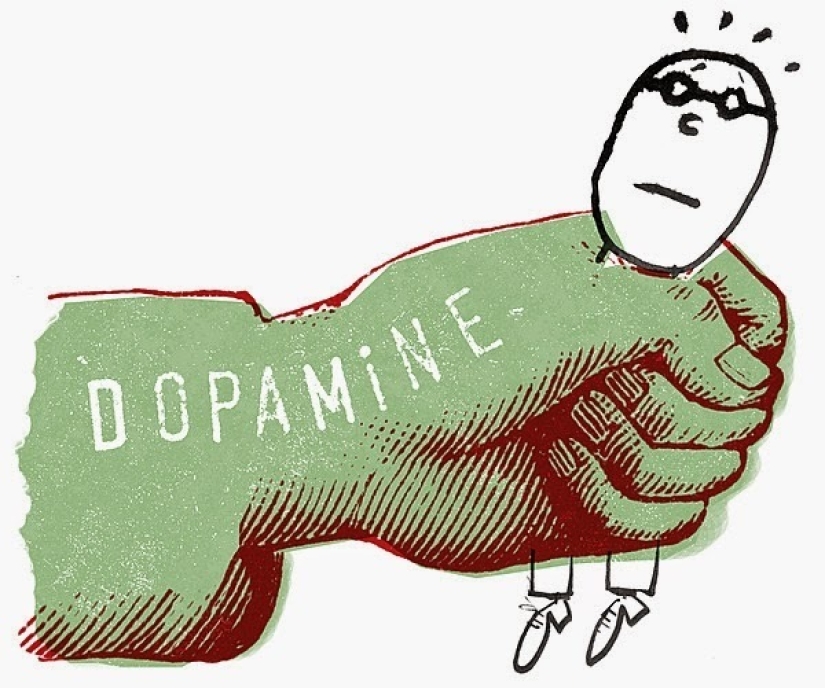
In 2001 , an employee Stanford University's Brian Knutson proved that dopamine is only a molecule responsible for motivation and encouragement. A carrot in front of the muzzle of an ever-walking donkey. Thanks to dopamine, a person performs the right actions due to evolution, seeks pleasure, but does not receive it.
In the modern world, dopamine encouragement is actively used in neuromarketing to manage millions of people. Thanks to a special set of tools that activate this substance, it is possible to "wake up" the basic needs of a person, forcing him to buy or perform other necessary actions.
Below is a list of the main dopamine traps.

Social approval is one of the biological needs of a person, and smartphones, tablets, social networks, various websites and forums can easily fill it. However, not for long. The effect of getting a like, although pleasant, is very short-term.
However, this is enough for dopamine to start working and make a person want to get more, more and even more "hearts".
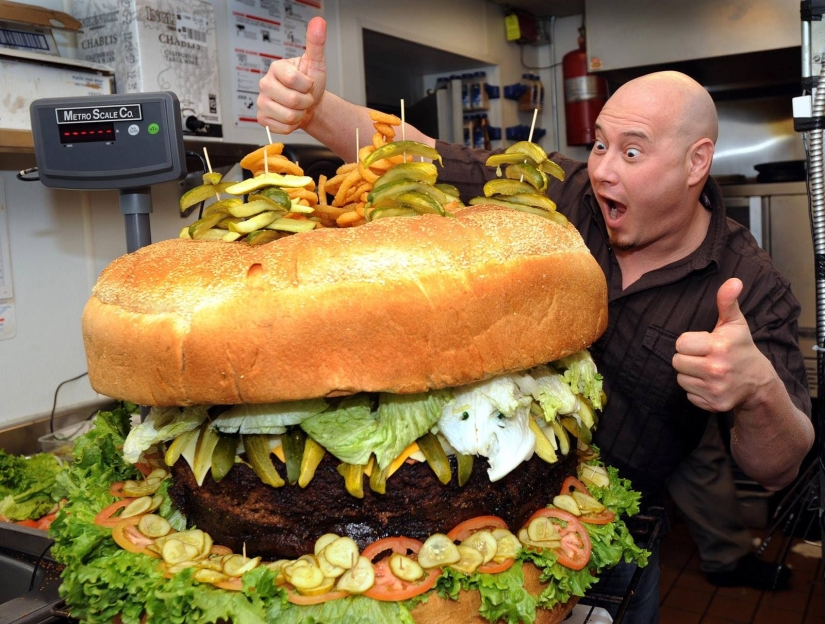
Have you noticed how people who refused sweets became angry, irritable and tired? The same thing happens, for example, with smokers when they decide to quit this bad habit.
No wonder sugar is often compared to a drug. High-calorie, sweet and fatty foods are the best stimulants for the reward system. They lead to the rapid release of dopamine in the brain and literally cause addiction in people.

Often at the entrance to the supermarket there are counters where you can taste food for free – it can be sausage cuts, any sweets, pastries or products containing caffeine. "What kind of marathon of unprecedented generosity?" - you think and try a little delicacy.
In fact, everything is simple. Thus, with the help of food or drinks, you are caught on a "dopamine hook". There is a high probability that you will return to this place more than once in the future. By the way, it is for this purpose that cafes and restaurants often serve free sweets with coffee.

Different flavors subconsciously influence the behavior of customers, forcing them to stay in the store as long as possible and make purchases. There is even a separate branch in neuromarketing, whose specialists are engaged in the development of incense.
For example, with the help of complex engineering solutions, you can "lure" customers from the upper floors of a shopping center to an ice cream parlor located at the very bottom. To do this, a fruity aroma is spread on the upper tiers, below - the smell of ice cream, and closer to the institution itself - the aromas of caramel and vanilla.
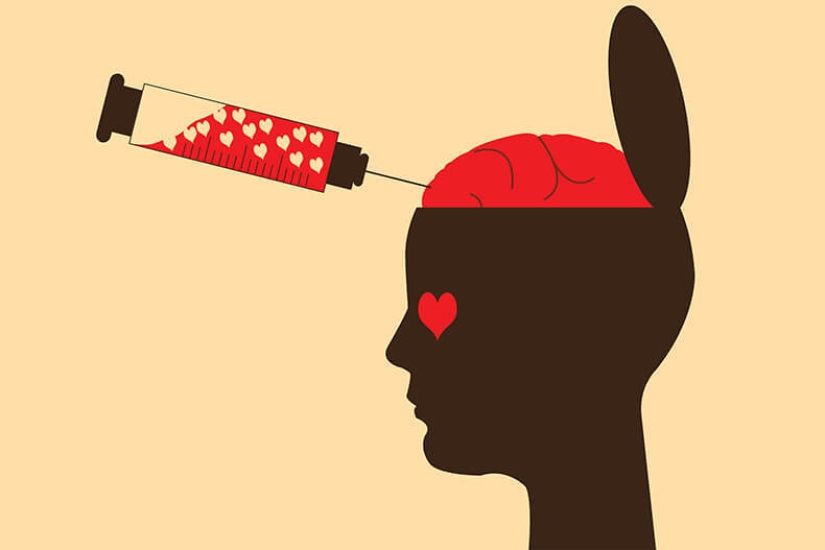
Isn't it true that when you see a photo of an exquisite dish on the Internet, you have a desire to try it? So it is with most people. Visual stimuli play a huge role in influencing the reward system.
That is why most cafes and restaurants no longer use the standard menu format "dish name, description, cost". It is much more effective to show the client photos of dishes, and he himself will want to order them.

The use of sex in advertising, though rather tired, but continues to bring sellers the desired result. You probably noticed various advertising slogans with erotic overtones, the promise to "give pleasure" and "send to the seventh heaven of pleasure."
So, all this is the long-known formula of sex sells, which causes consumers almost a dopamine itch and a desire to urgently make a purchase or take advantage of the offer.

Write on the showcase that you have a "new arrival of goods", and the buyer will definitely come to see, without even knowing what exactly appeared here ... All because the dopamine system encourages us to learn something new, to study the world around us.
For the same reason, new menu items regularly appear in restaurants and cafes. "We have a new dish from the chef, do you want to try it? Of course I want to, what questions can there be!" - that's about how it works.
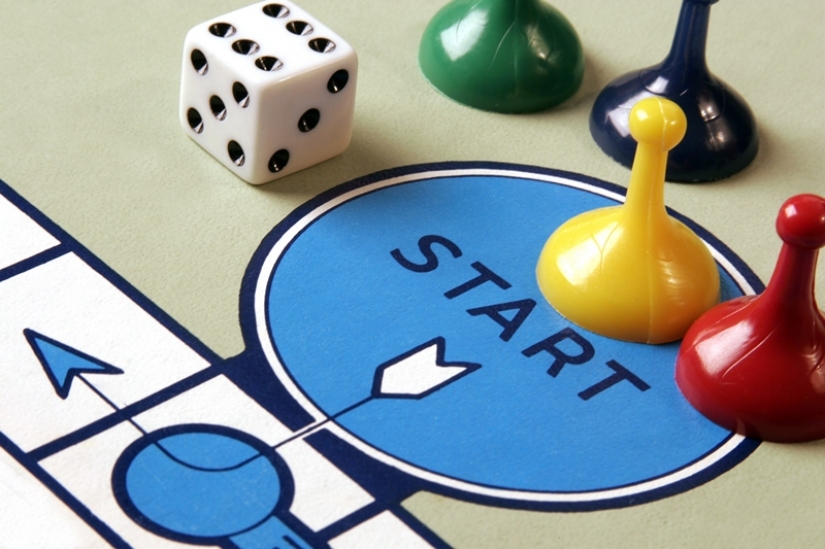
The desire to win is inherent in every person, so it is not surprising that gamification (the use of game approaches in non-game processes) so effectively proved itself in the consumer market.
Bonus program with a set of points, discounts, cashbacks, contests, rewards for performing various actions ("tenth cup of coffee for free", "bring a friend - get a prize", etc.) – all this and much more you meet every day in the same supermarkets and involuntarily become a participant in this "game".

According to the results of the study, the subjects who knew exactly how much juice they would be poured, practically no dopamine was produced in the brain. At the same time, in the brains of people for whom the exact amount of juice was a mystery, the amount of this substance was growing rapidly.
This "chip" is used by the creators of the Kiip mobile platform. Active users of the program are rewarded for their achievements within the service. It always happens spontaneously, at the moment when the user is not waiting for it. Thanks to such a move, a reward (and it can be, for example, a bottle of water of a certain brand) will always be associated with pleasant emotions in a person.

Phrases like "There are two days left until the end of the promotion!" have a very effective effect on sales, since most people have a fear of "losing something". Let's remember "Black Friday". On this day, people buy absolutely unnecessary things in stores, and then for the rest of the year they blame themselves for spendthrift and frivolity.
Admit it, have you fallen for any of these tricks?
Recent articles

This kotmadam not sorry neither forces, nor means to that beloved furry face was happy. In Switzerland, the cats are so sensitive ...

What comes to mind when you mention St. Petersburg? Naturally, the unique architecture, the dank weather and the culture that this ...

From the outside it seems that success comes easily. But in fact, behind it there is usually hard work, many failures and, often, ...